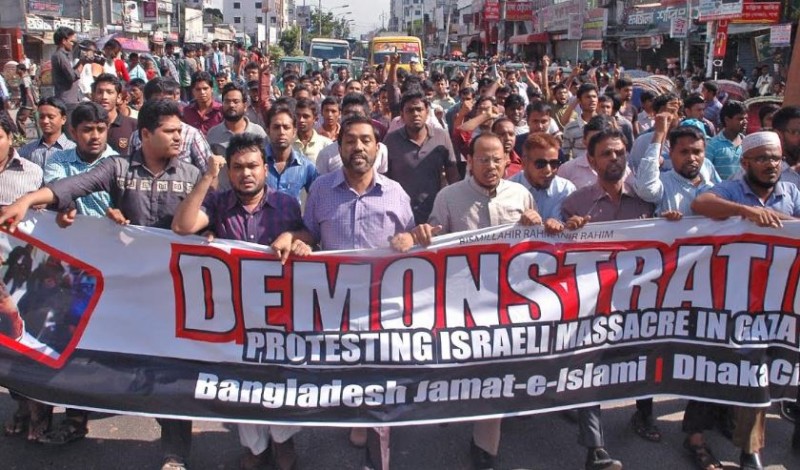
Dhaka: On August 28, 2024, the interim government of Bangladesh, led by Mohammad Yunus, decided to lift the ban on Jamaat-e-Islami and its student organization, Chhatra Shibir. This decision reverses the ban that had been imposed by the previous government under Prime Minister Sheikh Hasina. The Yunus administration has issued an order stating that there is no concrete evidence linking Jamaat-e-Islami or Chhatra Shibir to terrorism or violent activities, which led to the decision to lift the ban.
The previous ban, enforced on August 1, 2024, by Sheikh Hasina's government, was based on accusations that Jamaat-e-Islami was involved in terrorist activities and violent actions disguised as part of an anti-reservation student movement. The Hasina administration alleged that the organization incited violence and attacked police officers during these protests. Additionally, Jamaat-e-Islami was accused of destabilizing the government, which contributed to Hasina's resignation.
With the ban now lifted, Jamaat-e-Islami is permitted to hold public meetings and operate its student camps openly. This policy shift follows the resignation of Sheikh Hasina and the rise of leaders sympathetic to Jamaat-e-Islami within the Yunus administration. The lifting of the ban reflects the new political dynamics in Bangladesh, where Jamaat supporters are gaining influence.
Jamaat-e-Islami is an Islamic fundamentalist organization founded in 1941 in India by Maulana Maududi. After the partition of India, it became Jamaat-e-Islami of Pakistan and was involved in the Bangladesh Liberation War, aligning with Pakistani forces. Following the war, many Jamaat leaders fled to Saudi Arabia and Pakistan. However, the organization was revived in Bangladesh after the assassination of Mujibur Rahman and the imposition of military rule in 1975.
Jamaat-e-Islami aims to promote radical Islam and oppose Sufism, and has historically supported Islamic fundamentalism in Bangladesh, India, and Pakistan. The organization has been a significant political force in Bangladesh, often clashing with secular leaders like Sheikh Hasina, who was known for her strong stance against fundamentalism and her efforts to protect minority rights.
In 2013, the Bangladesh High Court canceled Jamaat-e-Islami's registration as a political party, citing its preference for religious principles over democratic processes. With the ban now lifted, there is speculation that Jamaat-e-Islami may seek to form an alliance with the Bangladesh Nationalist Party (BNP) in future elections. However, any potential political comeback will likely face legal and judicial challenges.
PM Narendra Modi Meets Nagaland Governor La Ganesan and Marks National Sports Day
BJP's Murtaza Khan Holds Roadshow Ahead of Jammu and Kashmir Assembly Elections
Celebrating National Small Industry Day: A Tribute to India's Backbone